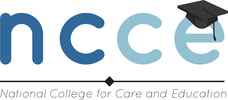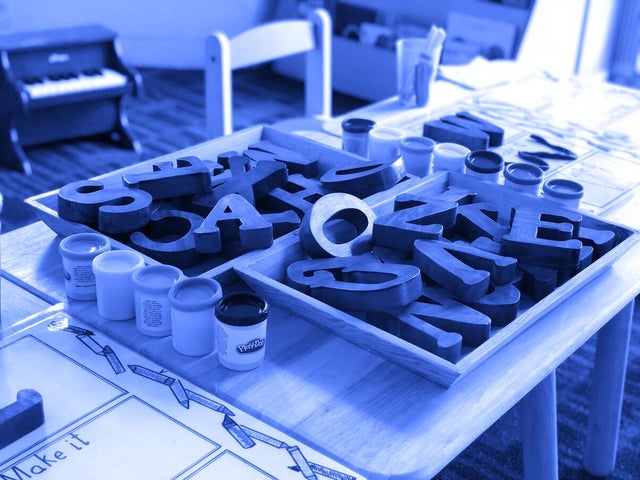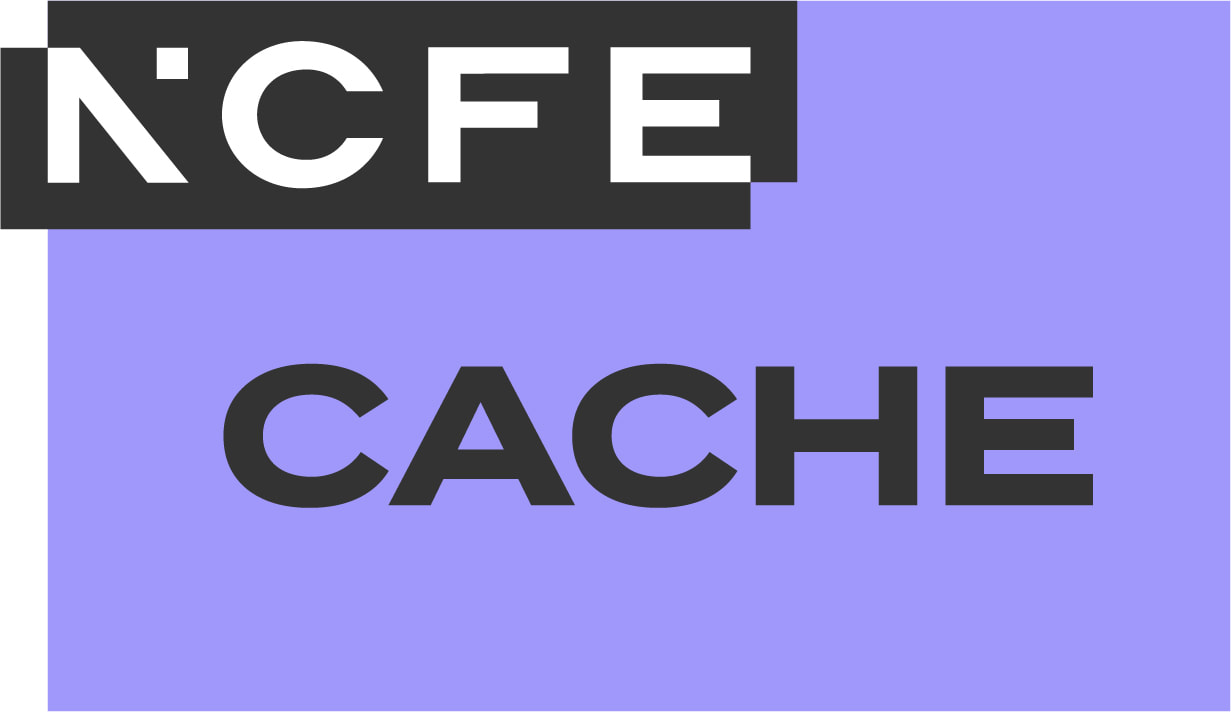- Early Years Education
- >
- CACHE Level 4 Diploma in Montessori Pedagogy (Early Years Educator)
CACHE Level 4 Diploma in Montessori Pedagogy (Early Years Educator)
SKU:
£2,080.00
86.67
2080
£86.67 - £2,080.00
Unavailable
per item
💙 Onsite Observations - INCLUDED ✅
💙 1-2-1 Tutorials - INCLUDED ✅
💙 Interactive online learning - INCLUDED ✅
💙 All taught sessions - INCLUDED ✅
💙 Additional CPD Webinars - INCLUDED ✅
💙 Awarding Body Fees - INCLUDED ✅
💙 Student Community Group - INCLUDED ✅
💙 Extension Fees - ABSOLUTELY NOT! ❎
Check out our terms and conditions right here.
💙 1-2-1 Tutorials - INCLUDED ✅
💙 Interactive online learning - INCLUDED ✅
💙 All taught sessions - INCLUDED ✅
💙 Additional CPD Webinars - INCLUDED ✅
💙 Awarding Body Fees - INCLUDED ✅
💙 Student Community Group - INCLUDED ✅
💙 Extension Fees - ABSOLUTELY NOT! ❎
Check out our terms and conditions right here.
-
Key Facts
-
Description
-
Placement
-
Syllabus
-
Your Future
<
>
Qualification Level: 4
Awarding Body: CACHE
Regulated Qualification (QRN) Number: 601/4481/6
Placement Required: Yes
Recognised Qualification: Yes. RQF
Entry Requirements: L2 Literacy and Numeracy preferred
Minimum Age: 18 Years
Pre-requisites: None. However, if you do not have L2 in Maths and English, you may wish to consider our Level 2 Diploma for the Early Years Practitioner with EYP status
Duration: The enrolment period is 12-18 months.
Payment types: Instalments available Payment types: Instalments available.
Resources included: Full tutor support, workplace observation* and assessment, online learning materials and student support forum
The structure of the qualification to achievement includes:
Have a look at the 'syllabus' tab for more information on your journey to achievement of the Montessori EYE Diploma.
*Please see our terms and conditions relating to on-site observations for learners living outside of the UK mainland.
Awarding Body: CACHE
Regulated Qualification (QRN) Number: 601/4481/6
Placement Required: Yes
Recognised Qualification: Yes. RQF
Entry Requirements: L2 Literacy and Numeracy preferred
Minimum Age: 18 Years
Pre-requisites: None. However, if you do not have L2 in Maths and English, you may wish to consider our Level 2 Diploma for the Early Years Practitioner with EYP status
Duration: The enrolment period is 12-18 months.
Payment types: Instalments available Payment types: Instalments available.
Resources included: Full tutor support, workplace observation* and assessment, online learning materials and student support forum
The structure of the qualification to achievement includes:
- 6 blocks of knowledge-based e-learning, including online taught sessions with your NCCE Tutor
- A practical assessment day within your own setting, where you will be observed and complete a professional discussion with your NCCE Assessor
- The development of a practical portfolio of activities and reflections to demonstrate your competency
- A final witness statement with your placement supervisor to confirm your suitability as an Early Years Practitioner and your ability to implement the Montessori Pedagogy within the setting.
Have a look at the 'syllabus' tab for more information on your journey to achievement of the Montessori EYE Diploma.
*Please see our terms and conditions relating to on-site observations for learners living outside of the UK mainland.
The aim of this qualification is to provide the learner with the expertise, skills and professional approach needed to become a facilitator of Montessori education, including preparation to take on a leadership role in a Montessori setting.
“The real preparation for education is the study of one’s self. The training of the teacher who is to help life is something far more than the learning of ideas. It includes the training of character; it is a preparation of the spirit”
If we take this vision of Maria Montessori seriously, then the training of Montessori teachers must involve a unique approach. One which values not only the challenge and demand of understanding child development and the Montessori curriculum, the development of skills needed for managing the dynamics of a Montessori classroom, but also values the development of the individual who is in training.
The Diploma in Montessori Pedagogy – Birth to Seven (Early Years Educator), therefore recognises that a training in Montessori pedagogy requires a breadth of understanding and varied set of skills as well as specific attitudes to children and to on-going development.
The objective of this qualification is to provide the learner with the expertise, skills and professional approach needed to become a Montessori educator, acting as a key person in a Montessori classroom. This includes preparation of the environment, preparation of oneself, observation of children’s development and skills in using an integrated understanding of children and the Montessori materials to guide children’s learning and development.
To achieve this qualification, you will be engaged in a number of taught, theoretical blocks, using a method of blending digital learning, interactive quizzes, live-learning with your tutor and practical elements within a Montessori setting.
The structure of the qualification to achievement includes:
Have a look at the 'syllabus' tab for more information on your journey to achievement of the Montessori EYE Diploma.
“The real preparation for education is the study of one’s self. The training of the teacher who is to help life is something far more than the learning of ideas. It includes the training of character; it is a preparation of the spirit”
If we take this vision of Maria Montessori seriously, then the training of Montessori teachers must involve a unique approach. One which values not only the challenge and demand of understanding child development and the Montessori curriculum, the development of skills needed for managing the dynamics of a Montessori classroom, but also values the development of the individual who is in training.
The Diploma in Montessori Pedagogy – Birth to Seven (Early Years Educator), therefore recognises that a training in Montessori pedagogy requires a breadth of understanding and varied set of skills as well as specific attitudes to children and to on-going development.
The objective of this qualification is to provide the learner with the expertise, skills and professional approach needed to become a Montessori educator, acting as a key person in a Montessori classroom. This includes preparation of the environment, preparation of oneself, observation of children’s development and skills in using an integrated understanding of children and the Montessori materials to guide children’s learning and development.
To achieve this qualification, you will be engaged in a number of taught, theoretical blocks, using a method of blending digital learning, interactive quizzes, live-learning with your tutor and practical elements within a Montessori setting.
The structure of the qualification to achievement includes:
- 6 blocks of knowledge-based e-learning, including online taught sessions with your NCCE Tutor
- A Practical Pedagogy Development Day where you will engage with the practical Montessori tools and resources
- 2 practical assessment days within your own setting, where you will be observed and complete a professional discussion with your NCCE Assessor
- The development of a practical portfolio of activities and reflections to demonstrate your competency
- A final witness statement with your placement supervisor to confirm your suitability as an Early Years Practitioner and your ability to implement the Montessori Pedagogy within the setting.
Have a look at the 'syllabus' tab for more information on your journey to achievement of the Montessori EYE Diploma.
A minimum of 400 hours professional placement in an approved Montessori early years setting is required. This can be voluntary or employed. The setting must be working with children from birth to age 5.
You will need to have access to a suitable placement within the early years, covering children from birth to five. You will need support from a willing supervisor (for witness statements and signing of practical work).
You will need to record 400 hours of placement activity within your placement log. You may complete the work with any age group in the Early Years. The placement tasks may be completed over the duration of the course, or you may take “block weeks”. Therefore, it is important to note that you may begin the course without a placement, but you must complete the required placement tasks before you will be awarded your certification.
You will need to have access to a suitable placement within the early years, covering children from birth to five. You will need support from a willing supervisor (for witness statements and signing of practical work).
You will need to record 400 hours of placement activity within your placement log. You may complete the work with any age group in the Early Years. The placement tasks may be completed over the duration of the course, or you may take “block weeks”. Therefore, it is important to note that you may begin the course without a placement, but you must complete the required placement tasks before you will be awarded your certification.
This qualification is broken into four themes, which is further divided into several theory blocks of study. In addition, learners enrolled on this programme will undertake a comprehensive range of placement-based activities and a fully assessed practical day with your assessor within your own workplace and a practical workshop session. During the assessment days, you will be observed in your practice as well as engage in professional discussions of your work. Your tutor will support you in preparing for your assessment day.
Introduction Block:
Completed 2 short introductory modules on the Early Years Foundation Stage (the statutory framework followed in English settings) and in the basics of Montessori Pedagogy.
Block 1:
Unit 1: Study Skills- This unit introduces both principles of effective study and practical ways to improve learners’ study skills. It includes how to source, organise, reference and present researched information as well as engage with self-reflective practice. The qualification relies on the learners’ capacity to organise their own effective study, and their capacity to source and use information.
Unit 2: The Montessori Philosophy- The unit introduces key principles and practices of the Montessori approach to early years education including the historical context of Doctor Maria Montessori. Focus is placed on the principles of how Montessori’s theories are applied in the Montessori classroom by exploring stages of development; the favourable environment; the role of the Montessori educator and additional key elements of the Montessori philosophy and pedagogy.
Block 2:
Unit 3: Principles of Child Development and Observation in an Early Years Montessori Learning Environment- This unit explores the holistic nature of child development incorporating physical, cognitive, social and emotional, language and communication development. Stages of development are considered alongside key frameworks for assessing development including the Early Years Foundation Stage. The role of play as an active domain of integrated development will also be examined. The unit explores the core Montessori philosophy of ‘following the child’ through observation, developing the practitioner’s ability to tune in sensitively to the unique potential of every child.
Block 3:
Unit 4: Contemporary Early Childhood Practice in an Early Years Montessori Learning Environment- This unit explores the relationship of the Montessori early years approach with current curriculum and statutory requirements of early years education. This includes the roles and relationships that support children in and out of the classroom and the promotion of inclusive practice to support the needs of the individual child, including those who require additional support.
Unit 5: Promoting Children’s Health and Well-being in an Early Years Montessori Learning Environment- This unit considers the health and well-being of young children in the Montessori early years setting and explores the role of the Montessori early years educator in supporting health and well-being.
Block 4:
Unit 6: Activities of Everyday Living in an Early Years Montessori Learning Environment- This unit explores the role of the Montessori educator in providing an environment that is favourable to the child’s development by drawing on activities of everyday living. This unit introduces a range of practical activities and how these activities may be presented in the classroom.
Unit 7: Education of the Senses in an Early Years Montessori Learning Environment- This unit explores the Montessori understanding of the education of the senses as a foundation for learning and development. This includes consideration of Montessori philosophy, with specific attention to the principles of the sensitive periods and the absorbent mind. The unit introduces a range of Montessori activities in sensorial education and explores how these activities can be presented in the classroom.
Block 5:
Unit 8: Numeracy and Arithmetic in an Early Years Montessori Learning Environment- This unit provides the learner with insights into the Montessori approach to developing the child’s capacities in mathematics. This will support the child’s sensitive period for order and build on the foundations already laid in sensorial education. This unit introduces a range of practical activities in this area and explores how these activities can be introduced in the classroom.
Unit 9: Literacy in an Early Years Montessori Learning Environment- This unit provides the learner with insights into the Montessori approach to literacy and language skills. This will include specific activities that prepare the child for literacy (reading and writing) and grammar. The unit introduces a range of practical activities and explores how these activities can be presented in the classroom.
Block 6:
Unit 10: Knowledge and Understanding of the World in an Early Years Montessori Learning Environment- This unit explores the Montessori approach to developing the child’s knowledge and understanding of the world. This includes consideration of the principle of Cosmic Education and how this is embedded in the daily life of children in a Montessori educational setting. It also considers what it means in the context of the lives of children, the Montessori setting and the wider community. The unit introduces a range of practical activities and experiences in this area and explores how these activities can be presented inside and outside the classroom.
Unit 11: Creativity in an Early Years Montessori Learning Environment- This unit aims to provide the learner with insights into the vital role creativity and creative thinking play in children’s learning and development, and how this is supported in the Montessori approach. This will include consideration of creativity and the expressive arts both as a subject area and also as an approach integrated throughout the curriculum. Stimulating curiosity and providing the freedom for self-expression and discovery support the development of creativity in the Montessori environment. Creativity plays a vital role in the holistic development of the child, allowing children to make sense of their world by developing their own understanding based on direct experiences in the environment.
Practical Skills:
This practical skills development sessions will be included as a part of your assessor visits, which will allow you to engage in Montessori activities in placement. You will be able to use the Montessori resources and consider the context in relation to the pedagogy and philosophy of Montessori. The Practical Development session is a mandatory element of you course and you will engage in a range of activities that will be added to your portfolio of evidence for your qualification.
You will engage with a range of resources in the sessions throughout the day, covering areas including:
You will have the opportunity to use and play with resources including (but not limited to!)
Setting Practical Assessment:
This unit focuses on the skills needed to work in a Montessori early years educational setting. It brings together knowledge and understanding of the Montessori philosophy by focusing on the application of communication skills, practical skills, role- modelling, and engagement with policies and procedures of an early years setting. This unit sets out the requirements for the learner to be able to demonstrate their understanding of the skills required in the Montessori early years learning environment through working in a practical context with children up to the age of seven. You will be assessed in the setting via a series of observations by your NCCE Assessor, a placement reflective diary, a practical log, a recorded witness statement between your NCCE assessor and work based supervisor, plus a professional discussion between you and your assessor.
Introduction Block:
Completed 2 short introductory modules on the Early Years Foundation Stage (the statutory framework followed in English settings) and in the basics of Montessori Pedagogy.
Block 1:
Unit 1: Study Skills- This unit introduces both principles of effective study and practical ways to improve learners’ study skills. It includes how to source, organise, reference and present researched information as well as engage with self-reflective practice. The qualification relies on the learners’ capacity to organise their own effective study, and their capacity to source and use information.
Unit 2: The Montessori Philosophy- The unit introduces key principles and practices of the Montessori approach to early years education including the historical context of Doctor Maria Montessori. Focus is placed on the principles of how Montessori’s theories are applied in the Montessori classroom by exploring stages of development; the favourable environment; the role of the Montessori educator and additional key elements of the Montessori philosophy and pedagogy.
Block 2:
Unit 3: Principles of Child Development and Observation in an Early Years Montessori Learning Environment- This unit explores the holistic nature of child development incorporating physical, cognitive, social and emotional, language and communication development. Stages of development are considered alongside key frameworks for assessing development including the Early Years Foundation Stage. The role of play as an active domain of integrated development will also be examined. The unit explores the core Montessori philosophy of ‘following the child’ through observation, developing the practitioner’s ability to tune in sensitively to the unique potential of every child.
Block 3:
Unit 4: Contemporary Early Childhood Practice in an Early Years Montessori Learning Environment- This unit explores the relationship of the Montessori early years approach with current curriculum and statutory requirements of early years education. This includes the roles and relationships that support children in and out of the classroom and the promotion of inclusive practice to support the needs of the individual child, including those who require additional support.
Unit 5: Promoting Children’s Health and Well-being in an Early Years Montessori Learning Environment- This unit considers the health and well-being of young children in the Montessori early years setting and explores the role of the Montessori early years educator in supporting health and well-being.
Block 4:
Unit 6: Activities of Everyday Living in an Early Years Montessori Learning Environment- This unit explores the role of the Montessori educator in providing an environment that is favourable to the child’s development by drawing on activities of everyday living. This unit introduces a range of practical activities and how these activities may be presented in the classroom.
Unit 7: Education of the Senses in an Early Years Montessori Learning Environment- This unit explores the Montessori understanding of the education of the senses as a foundation for learning and development. This includes consideration of Montessori philosophy, with specific attention to the principles of the sensitive periods and the absorbent mind. The unit introduces a range of Montessori activities in sensorial education and explores how these activities can be presented in the classroom.
Block 5:
Unit 8: Numeracy and Arithmetic in an Early Years Montessori Learning Environment- This unit provides the learner with insights into the Montessori approach to developing the child’s capacities in mathematics. This will support the child’s sensitive period for order and build on the foundations already laid in sensorial education. This unit introduces a range of practical activities in this area and explores how these activities can be introduced in the classroom.
Unit 9: Literacy in an Early Years Montessori Learning Environment- This unit provides the learner with insights into the Montessori approach to literacy and language skills. This will include specific activities that prepare the child for literacy (reading and writing) and grammar. The unit introduces a range of practical activities and explores how these activities can be presented in the classroom.
Block 6:
Unit 10: Knowledge and Understanding of the World in an Early Years Montessori Learning Environment- This unit explores the Montessori approach to developing the child’s knowledge and understanding of the world. This includes consideration of the principle of Cosmic Education and how this is embedded in the daily life of children in a Montessori educational setting. It also considers what it means in the context of the lives of children, the Montessori setting and the wider community. The unit introduces a range of practical activities and experiences in this area and explores how these activities can be presented inside and outside the classroom.
Unit 11: Creativity in an Early Years Montessori Learning Environment- This unit aims to provide the learner with insights into the vital role creativity and creative thinking play in children’s learning and development, and how this is supported in the Montessori approach. This will include consideration of creativity and the expressive arts both as a subject area and also as an approach integrated throughout the curriculum. Stimulating curiosity and providing the freedom for self-expression and discovery support the development of creativity in the Montessori environment. Creativity plays a vital role in the holistic development of the child, allowing children to make sense of their world by developing their own understanding based on direct experiences in the environment.
Practical Skills:
This practical skills development sessions will be included as a part of your assessor visits, which will allow you to engage in Montessori activities in placement. You will be able to use the Montessori resources and consider the context in relation to the pedagogy and philosophy of Montessori. The Practical Development session is a mandatory element of you course and you will engage in a range of activities that will be added to your portfolio of evidence for your qualification.
You will engage with a range of resources in the sessions throughout the day, covering areas including:
- Activities of Everyday Living
- Education of the Senses
- Numeracy and Arithmetic
- Literacy
- Knowledge and Understanding of the World
You will have the opportunity to use and play with resources including (but not limited to!)
- The Montessori Rose Tower
- Number Rods
- Baric Tablets
- Thermic Tablets
- Touch Boards
- Geometric Form Cards
- Sound Boxes
- Constructive Triangles
- Beads and arrows
- Sand paper numerals
- Spindle box
- Fraction Skittles
- Continent Puzzle Map
- Sandpaper Globe
- Sandpaper Letters
- Montessori phonics cards
- Botany Puzzles
- Dressing Frames
- Practical Life Resources
Setting Practical Assessment:
This unit focuses on the skills needed to work in a Montessori early years educational setting. It brings together knowledge and understanding of the Montessori philosophy by focusing on the application of communication skills, practical skills, role- modelling, and engagement with policies and procedures of an early years setting. This unit sets out the requirements for the learner to be able to demonstrate their understanding of the skills required in the Montessori early years learning environment through working in a practical context with children up to the age of seven. You will be assessed in the setting via a series of observations by your NCCE Assessor, a placement reflective diary, a practical log, a recorded witness statement between your NCCE assessor and work based supervisor, plus a professional discussion between you and your assessor.
Learners may progress directly into work in a Montessori early years setting, or an Early Years setting.
The aim of this qualification is to provide the learner with the expertise, skills and professional approach needed to become a facilitator of Montessori education, acting as a key person in a Montessori classroom.
A minimum of 400 hours professional placement in an approved Montessori early years setting is required. Some of the assessment criteria in this qualification must be assessed on the professional placement (in a real work environment). Evidence from the professional placement will contribute to the learner’s portfolio of evidence.
Learners may progress directly into work in a Montessori early years setting or may wish to progress to a foundation degree or similar.
The aim of this qualification is to provide the learner with the expertise, skills and professional approach needed to become a facilitator of Montessori education, acting as a key person in a Montessori classroom.
A minimum of 400 hours professional placement in an approved Montessori early years setting is required. Some of the assessment criteria in this qualification must be assessed on the professional placement (in a real work environment). Evidence from the professional placement will contribute to the learner’s portfolio of evidence.
Learners may progress directly into work in a Montessori early years setting or may wish to progress to a foundation degree or similar.







